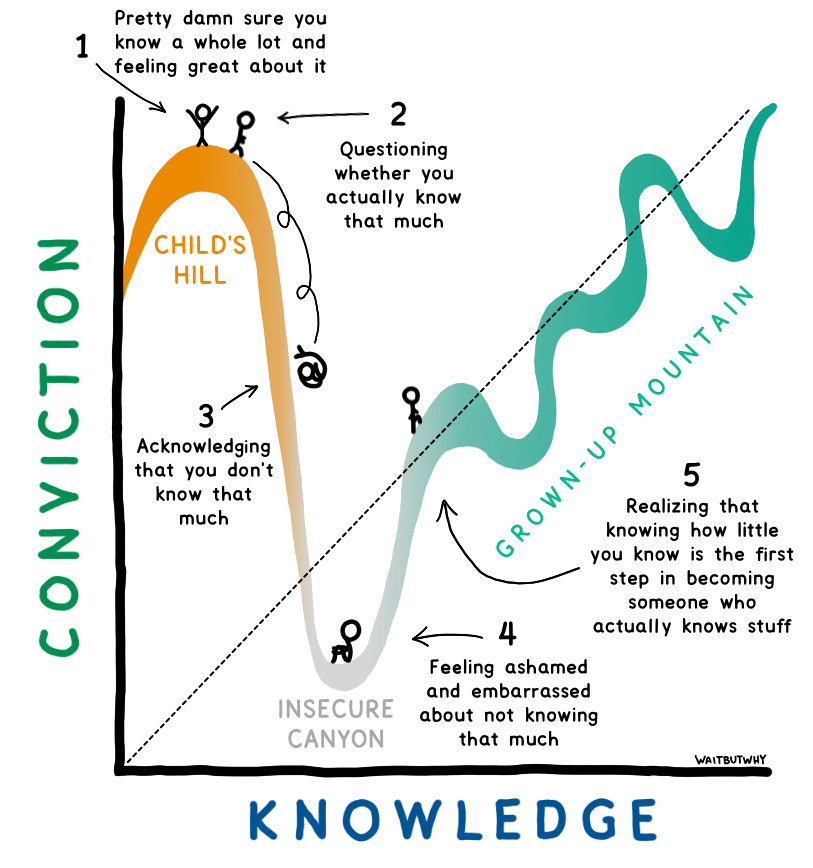On the Dunning-Kruger effect
Do you believe you’re an above-average driver? If so, you’re in the company of 93% of American drivers who also think they are above average. And if you spotted that the math doesn't add up, you’d be correct. Either you're truly above average at driving, or you're one of many people overestimating their abilities.
While there’s some debate about why this may be, one hypothesis is the Dunning-Kruger effect, a cognitive bias in which people with low ability or experience in a particular domain tend to overestimate their abilities or knowledge of that domain.
In the original studies from 1999, David Dunning and Justin Kruger found that “participants scoring in the bottom quartile on tests of humor, grammar, and logic grossly overestimated their test performance and ability. Although their test scores put them in the 12th percentile, they estimated themselves to be in the 62nd.” Many studies since then have focused on students, business, politics, medicine, and other areas.

Why does this happen? It may be tempting to think that arrogance or hubris plays a role. However, Dunning and Kruger suggest that poor performers lack the ability and skills necessary to understand what good and bad performance looks like, causing them to overestimate their own abilities. Or, as organizational psychologist Adam Grant explains, "when you lack the ability to produce excellence, you sometimes also lack the ability to recognize excellence.”
Since we all have blind spots and weaknesses, we’re all capable of being ignorant about the things we’re ignorant about. That said, there are a few things we can do to avoid falling victim to the Dunning-Kruger effect:
- Being aware of our own blind spots and limitations.
- Questioning our knowledge and conclusions regularly and being willing to admit when we’re wrong.
- Seeking feedback and constructive criticism from others.
- Continuing to learn and expand our knowledge and skills.
--
Side note: The Dunning-Kruger effect is often mistaken for another similar concept that shows the relationship between confidence and competence (as illustrated below). In this case, the explanation is rooted in excessive arrogance and pride in one’s own abilities, rather than mere ignorance. While this is an interesting idea, I’m not aware of any studies that support it.
